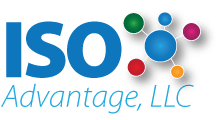The competitive marketplace in the 21st century continues to both reward and penalize firms seeking to distinguish themselves. Never has building the proverbial “better mouse trap” been as rewarding…or as risky!
The International Organization for Standardization (ISO) began in 1947 to assist in defining exactly what qualities would define that “better mouse trap.” In establishing world-class specifications for products, services and systems, the 163 members of the represented national standard bodies have fixed an international convention with the charge of sharing knowledge and developing voluntary, consensus-based, market-relevant international standards. By supporting innovation and providing an objective quality language for the 21st century, ISO certification offers opportunities for visionary, driven firms to compete and compare their efforts against worldwide organizations.
Admittedly, there are many reasons to consider becoming an ISO certified firm, some of which are most practical (“Our largest client is insisting that we gain ISO certification or they will shop elsewhere for widgets”). But, even the most specific of reasons offers the opportunity to consider how ISO 9001:2015 may impact the future of your firm

I recently spent a bit of time with Judi Markel, owner of ISO Advantage. Supported by her years of engineering, production, quality and management experience in a variety of companies, Judi spoke knowledgeably about the primary benefits of ISO certification. Among these were:
– ISO principles are universal; as such, they offer businesses the opportunity to prepare for the world-wide marketplace
– Within ISO certified firms, there exists a solid footprint for company operations and quality measurement; this foundation of continual improvement may become the basis for a developed marketing tool
– Given the recent revision from a quality management to a strategic business management system, many firms are discovering that ISO 9001:2015 certification furnishes them with a tangible blueprint and structure to pursue growth and embrace new business practices
– Once in place, a quality management system can facilitate third-party auditing, which will either confirm in-house performance excellence or highlight weaknesses
– In certain cases, the presence of an ongoing, robust ISO certification program has alleviated undue scrutiny and lessened customer audits
In her continuing experiences with ISO consulting and auditing, Judi noted that firms are often urged toward ISO certification by external pressures. However, these same firms learn quickly that the most profound effects of their ISO experience may be how their in-house quality systems are redefined and how their staff become true contributors. Laying aside the formulaic and template-driven styles of many consultants, Judi explained that ISO Advantage works with companies to establish a more tailored and custom-fit system. This approach propels far beyond compliance. In truth, the ISO Advantage goal is to design quality systems that will aid firms in achieving and maintaining excellence, while solidifying future market opportunities.
Our next ISO Advantage article will explore how a firm knows if it’s time to consider a commitment to becoming ISO 9001:2015 certified. To explore your firm’s possibilities, please feel free to contact Judi Markel at isoadvantage@comcast.net .
